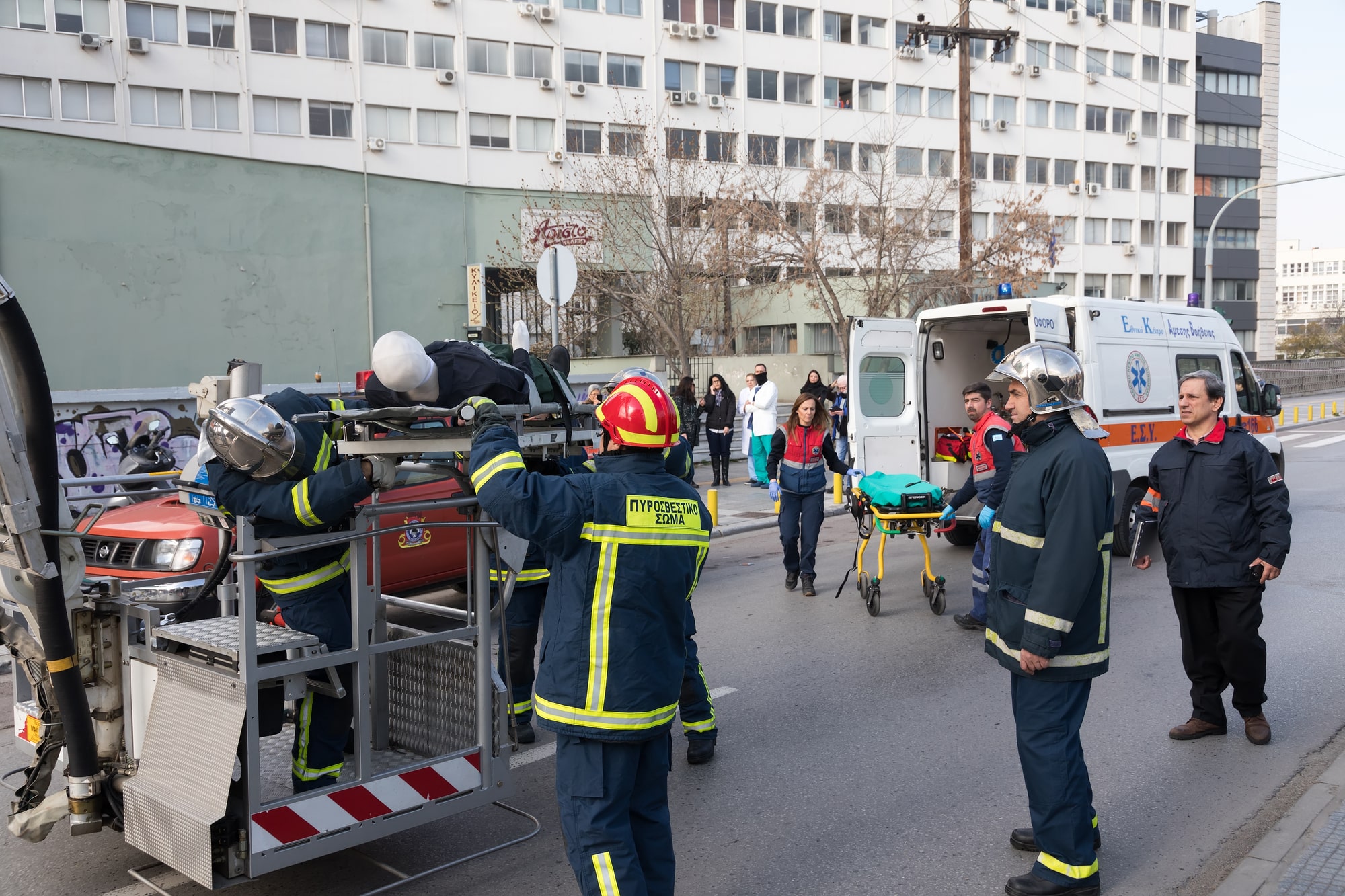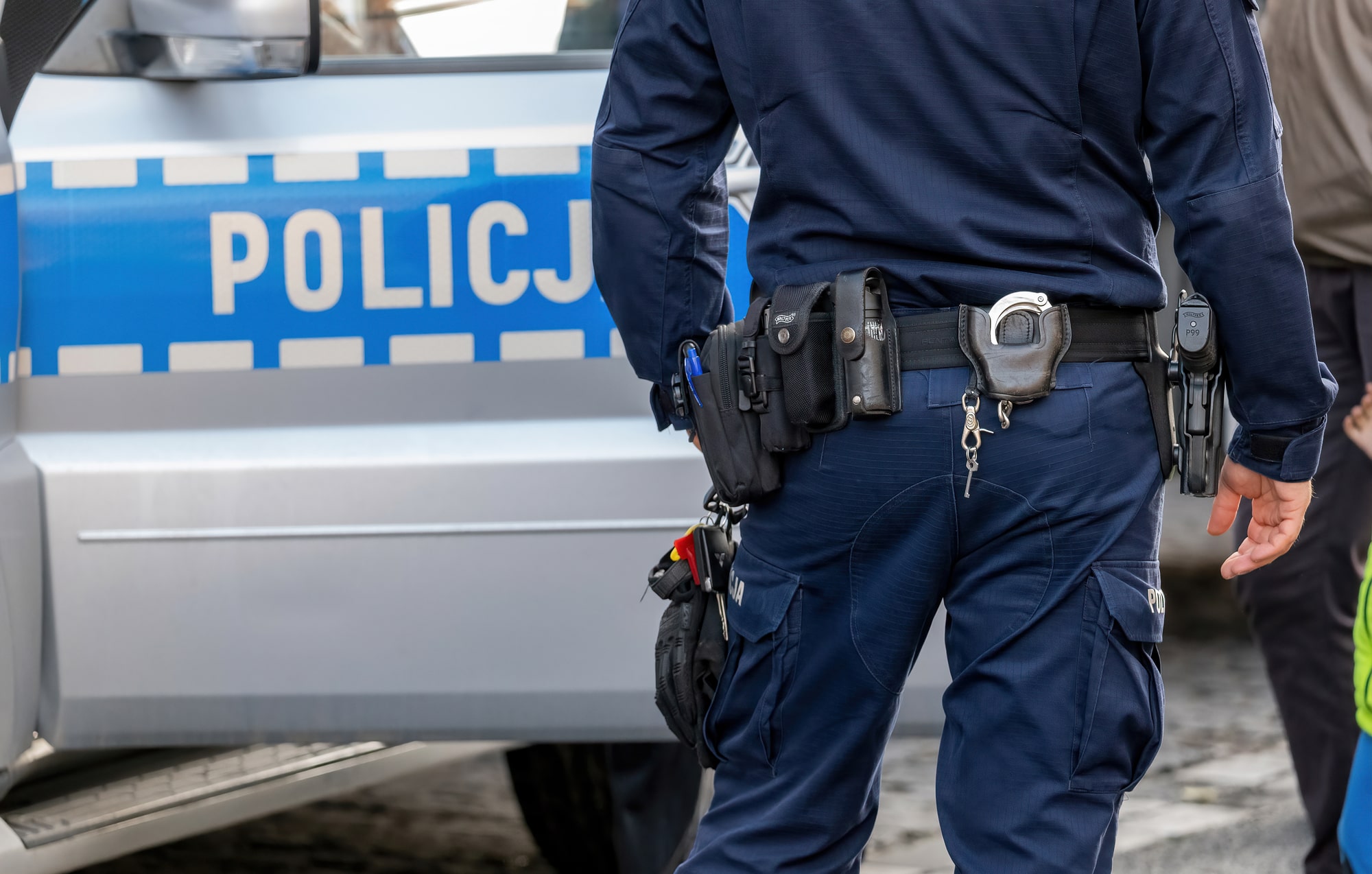In the line of duty, first responders � including police officers, EMS workers, and firefighters � are frequently exposed to traumatic events and life-threatening situations. These heroic duties come with a high occupational risk factor, leading many first responders...
In the line of duty, first responders � including police officers, EMS workers, and firefighters � are frequently exposed to traumatic events and life-threatening situations. These heroic duties come with a high occupational risk factor, leading many first responders to face mental health challenges, including post-traumatic stress disorder (PTSD) and acute stress disorder.
The toll on physical and mental health can sometimes lead to substance abuse issues, including drug and alcohol abuse. This comprehensive guide sheds light on the unique mental health conditions prevalent among first responders and offers a roadmap to specialized treatment and recovery.
Understanding the Intersection of Trauma and Addiction in First Responders
First responders, including police officers, firefighters, and EMS workers, are the frontline heroes in emergencies ranging from natural disasters to terrorist attacks. Their heroic duties, however, come with a high price, exposing them to traumatic events that can impact their mental and physical health.
Understanding the deep connection between trauma and addiction is vital in developing specialized treatment programs that address the unique needs of first responders.
The Daily Realities of First Responders
First responders, encompassing police officers, firefighters, and EMS workers, are routinely exposed to dangerous situations and traumatic events, a reality that comes with their heroic duties. The job involves handling emergencies ranging from natural disasters to terrorist attacks, which not only affect physical health but also pose a severe strain on mental health.
The occupational risk factors are high, increasing the risk of developing mental health conditions such as post-traumatic stress disorder (PTSD) and addiction. These conditions often co-occur with substance use disorders, creating a cycle of mental health and addiction challenges that can be hard to break without specialized treatment.
Understanding the daily realities is the first step in acknowledging the gravity of the situation and the urgent need for tailored treatment services. It is essential to create awareness about the mental health symptoms many first responders experience, encouraging them to seek mental health and addiction treatment before the issues escalate to chronic stress or more severe mental health disorders.

How to Treat Trauma and Addiction with First Responders: A Step-by-Step Approach
Embarking on the path to recovery from trauma and addiction is a courageous step. For first responders, this journey should be met with a comprehensive treatment plan addressing mental and physical health concerns. We outline a step-by-step approach to help first responders navigate the complex recovery landscape.
Step 1: Recognizing the Signs of Trauma and Addiction
The first step in the treatment process is recognizing the signs of trauma and addiction in first responders. First responders often face acute stress disorder, which can escalate to more severe mental health conditions if not addressed promptly. At this stage, being vigilant about the mental health symptoms and understanding the signs of substance abuse disorder is crucial.
Step 2: Creating a Supportive Environment
Creating a supportive environment is a vital step in the recovery process. This involves establishing safe spaces where first responders can openly discuss their experiences without fear of judgment. Peer support groups and family therapy sessions play a pivotal role in creating a support network, helping individuals cope with the traumatic events they have witnessed.
Step 3: Integrating Therapy and Counseling
Integrating therapy and counseling is the next step in the treatment program. Specialized treatment programs offer a range of therapies, including cognitive behavioral therapy and dialectical behavior therapy, to address various mental health conditions. These therapies help individuals manage PTSD symptoms and other mental health challenges effectively.
Step 4: Building Resilience and Coping Mechanisms
The final step in the treatment process is building resilience and developing coping mechanisms to handle stress and prevent relapse. This involves learning techniques to manage chronic stress and overcome addiction, fostering a sense of resilience to face the daily challenges with a renewed spirit.
The Importance of Specialized Treatment Programs for First Responders
In the face of traumatic events and high-stress environments, first responders are at an increased risk of developing mental health disorders and succumbing to substance abuse. It is, therefore, imperative to have specialized treatment programs tailored to address the unique mental health challenges they face.
Why Regular Treatment Programs May Not Suffice
Regular treatment programs may need to address the specific needs of first responders. Their experiences, such as dealing with life-threatening situations and witnessing the aftermath of natural disasters, require a nuanced approach to treatment.
Specialized treatment programs for first responders are designed to address the complex interplay of mental health and addiction, focusing on physical and mental health aspects. These programs offer cognitive behavioral therapy and dialectical behavior therapy, which are instrumental in helping individuals manage symptoms of PTSD and other mental health disorders.
Tailoring Treatment to the Unique Needs of First Responders
Understanding that first responders face different challenges than the general population is crucial in developing treatment programs that truly cater to their needs. These programs consider the on-the-job experiences and the prevalent occupational risk factors in their work.
Tailored programs offer treatment services, including group and family therapy sessions, which create a supportive environment encouraging open dialogue about mental health symptoms and substance abuse issues. They also focus on developing coping mechanisms to deal with chronic stress and other behavioral health concerns, helping first responders overcome addiction and lead healthier lives.
Resources and Support for First Responders and Their Families
First responders are often hailed as heroes, courageously stepping into dangerous situations to protect and serve the community. However, the toll of such heroic duties on their mental and physical health can be substantial. It is essential to have resources and support systems in place to aid first responders and their families in navigating the challenges that come with the territory.
The Role of Community and Peer Support in Recovery
Community and peer support groups play a crucial role in the recovery journey of first responders. These groups provide a safe and supportive environment where individuals can share their experiences and learn from others facing similar challenges. Peer support groups, in particular, offer a space where first responders can discuss their on-the-job experiences openly, helping to alleviate the burden of traumatic events and chronic stress.
Group therapy sessions can foster a sense of community and understanding, helping first responders cope with mental health challenges and substance abuse issues more effectively. These support systems are vital in helping individuals develop coping mechanisms and build resilience, facilitating a smoother recovery process.
Encouraging a Culture of Understanding and Support
Creating a culture of understanding and support is vital in encouraging more first responders to seek treatment. This involves dispelling the stigma associated with mental health disorders and promoting open dialogue about the challenges faced by first responders. Encouraging peers to be supportive and understanding can foster a community where individuals feel safe to seek mental health treatment without fear of judgment or negative consequences.
The Importance of Specialized Treatment Programs for First Responders
In the face of traumatic events and high-stress environments, first responders are at an increased risk of developing mental health disorders and succumbing to substance abuse. It is, therefore, imperative to have specialized treatment programs tailored to address the unique mental health challenges they face.
Why Regular Treatment Programs May Not Suffice
Regular treatment programs may fall short in addressing the specific needs of first responders. Their experiences, such as dealing with life-threatening situations and witnessing the aftermath of natural disasters, require a nuanced approach to treatment.
Specialized treatment programs for first responders are designed to address the complex interplay of mental health and addiction, focusing on physical and mental health aspects. These programs offer cognitive behavioral therapy and dialectical behavior therapy, which are instrumental in helping individuals manage symptoms of PTSD and other mental health disorders.
Tailoring Treatment to the Unique Needs of First Responders
Understanding that first responders face different challenges than the general population is crucial in developing treatment programs that truly cater to their needs. These programs consider the on-the-job experiences and the prevalent occupational risk factors in their line of work.
Tailored programs offer treatment services, including group and family therapy sessions, which create a supportive environment encouraging open dialogue about mental health symptoms and substance abuse issues. They also focus on developing coping mechanisms to deal with chronic stress and other behavioral health concerns, helping first responders overcome addiction and lead healthier lives.

Getting Started: Your Path to Recovery
Embarking on the path to recovery is a significant step for first responders grappling with trauma and addiction. This section aims to guide you through the initial stages of seeking treatment, helping you find the right resources and support to start your recovery journey on a solid footing.
How to Choose the Right Treatment Program
Choosing the right treatment program is a critical first step in recovery. First responders should seek specialized treatment programs that understand their unique mental health challenges. These programs should offer a range of services, including individual therapy, group therapy, and family therapy sessions, to address the various mental health conditions and substance use disorders they may be experiencing.
It is essential to find a program that employs addiction treatment professionals experienced in dealing with the specific issues that first responders face, including PTSD symptoms and other mental health disorders. Researching and consulting with a mental health provider can help make an informed decision.
Preparing for Treatment: What to Expect
Preparation is vital to a successful recovery journey. First responders should know what to expect during treatment to alleviate fears or anxieties. Treatment programs often involve a combination of cognitive behavioral therapy and dialectical behavior therapy to comprehensively address mental health and addiction issues.
Understanding the treatment process and setting realistic expectations can help create a supportive environment conducive to recovery. It is also beneficial to be aware of the coping mechanisms taught during therapy to manage chronic stress and other behavioral health concerns effectively.
Reach Out for Help: Your Journey Begins at Ranch Creek Recovery
In adversity, first responders showcase unparalleled bravery, constantly putting others before themselves. However, the traumatic events and high-stress situations they encounter can lead to a myriad of mental health and addiction issues.
At Ranch Creek Recovery, we understand the unique challenges first responders face, offering specialized treatment programs tailored to their specific needs. Our first responder treatment services incorporate a holistic approach, addressing mental and physical health concerns to foster a comprehensive recovery. We employ cognitive behavioral and dialectical behavior therapy, proven methods for treating various mental health conditions and substance use disorders. Reach out to Ranch Creek Recovery at (877) 997-8931 to start your journey toward healing today.






